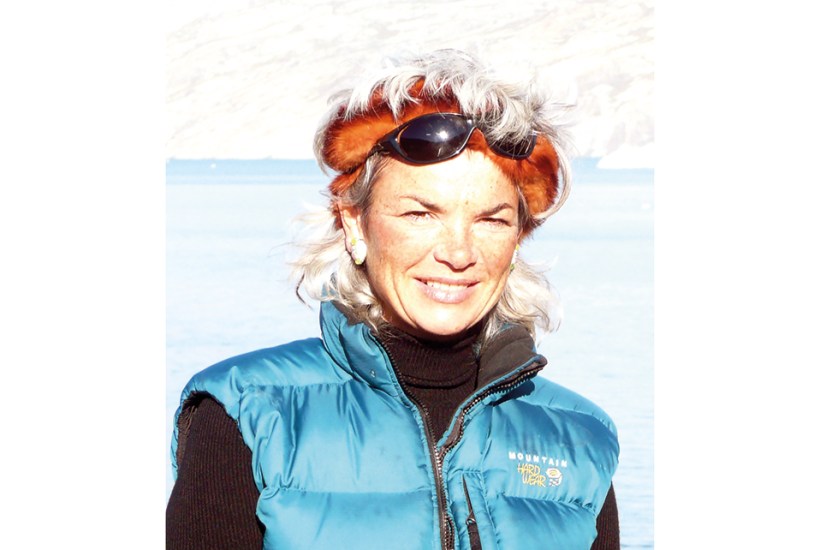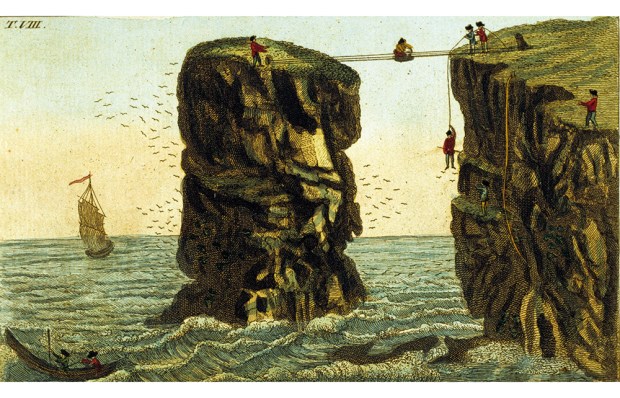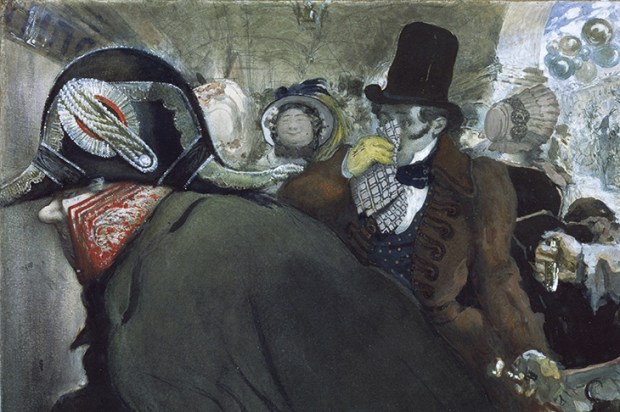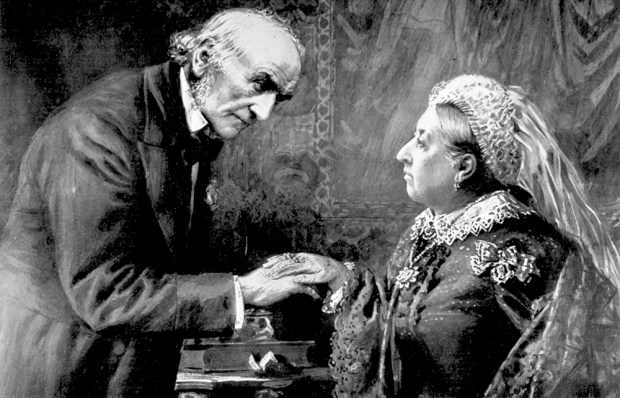Thirty years ago, in the days when friendships were sustained not by email but by air mail, a friend of mine was spending time in some exotic faraway place. He would send me beautiful, florid accounts of his travels and I would read out the most hilarious passages to the flatmates I was living with at the time. When I next replied to him, I sent him their regards and let him know how much they had enjoyed hearing about his adventures. The next letter was angry. Although part of me understood why (I suppose I had rather naively and stupidly shared something that was supposed to be private), another part of me struggled with an expression that was new to me. I had apparently committed what he called an act of ‘cultural appropriation’.
I didn’t hear that phrase anywhere else for a long time. But from that moment on, I realised it was only a matter of time before any recounting of anything that happened anywhere, whether real or imagined, directly experienced or told secondhand, could be judged by someone somewhere to be a betrayal of trust, and a form of stealing: ‘This is not your story to tell.’ The first casualty of this idea? Travel writing. As Sara Wheeler, now in her sixties, and whose first book, on Greece, was published in 1992, notes: ‘The form might be going extinct. If I were starting out now, I would not be able to make the same choices.’
Known for her travel writing (especially of the polar variety) as well as for biography, Wheeler fuses both those genres in this magnificent and unusual book. Glowing Still is a thoughtful and entertaining meditation on identity, geography and the position of the self in the world. Some of the ‘travel’ here is not a journey to a place but instead through her memories. And the subject of the biography is the figure of the travel writer, himself or herself – but mostly ‘herself’. Wheeler replays some of her experiences as a younger woman, this time not ignoring or downplaying the everyday misogyny around her. There is the sense that she did this to some extent as a young travel writer, in a bid both to find her voice and to avoid putting idiots at the centre of the narrative. (‘Are British men worst? Yes, I think they probably are, though white South Africans mount robust competition.’)
Most of us think of ourselves as great travellers, given enough time, opportunity or money. Or at least we used to. What happens, though, when certain forms of travel become politically incorrect? (Why are you flying when you could be taking the train?) Who wants to read about what a white middle-class person did on their holidays? And what if you shouldn’t be writing about this far-flung place in any case because (a) to those who live there it is not far-flung at all and (b) you have not earned the right to claim any understanding of another culture? Amid all the upheaval of the past decade – from #MeToo and ‘culture wars’ to Covid and climate crisis – Wheeler asks a question which had not occurred to me: ‘Who will think of the travel writers?’ But the answer to it affects us all, because without great travel writing surely the world is a smaller place. Or perhaps the opposite: it becomes too big to make sense.
Wheeler’s exploration and rewriting of her own travelling life is a brilliant way into this minefield. She turns herself into an expert revisionist guide, reframing voyages from the Antarctic to Paris and from Bangladesh to Russia through the lens of an increasingly uncertain and contradictory 21st-century sensibility. She does this with humour, pathos and genuine curiosity about herself and her work, revealing the backstory to her many award-winning books, including Terra Incognita: Travels in Antartica and The Magnetic North: Travels in the Arctic, all the while arguing that travel writing remains one of the only ways to express ‘the ineffable, the unsayable and the randomly comic’. She finds to her surprise that, on the cusp of her seventh decade, what she has really been looking for all along is ‘home’. And she feels most at home in the Bronx in 2019, where she can travel without travelling: in a fortnight she eats fahsa in Little Yemen, morog polao in Little Bangladesh, pho in Little Vietnam and ‘everything’ in Little Albania-Italy.
Wheeler diagnoses her desire to travel as coming from ‘an undetected frequency’, or perhaps simply as a way ‘to dilute the people among whom I had grown up’. She was raised in Bristol by ‘blue-collar Conservatives’, and the adult voices of her early years ‘expressed suspicion of Abroad’. Like many travellers, she is a linguist first and foremost, dreaming in Greek, having nightmares about verbs of motion in Russian, and always trying to pick up some new language or other.
But she is a true traveller, rather than an academic or a philologist, and moves easily from continent to continent. She is as happy waking up in the Serengeti with her eight-year-old son in tow as she is being the sole female on a seismology mission, puzzling over how to recycle Pringles tubes in the Antarctic. (She finds herself ‘having a minor nervous breakdown in front of an array of bins labelled: thin cardboard, thick cardboard, foil, hard plastic, soft metal, aluminium – and so it went on, with the dismantled Pringles tubes claiming a component in each category’.)
She interrogates her own writerly tendencies, questioning the once commonplace ‘wisdom’ that a man will ‘document his observations’, while a woman ‘writes about her external and internal journeys: her experiences, her delights, her hopes, her fears’. She adds: ‘I am not sure if that is true any more, or if it ever were true.’ Her own trick is to capture the casual banality of travel – when we often think we’ve gone somewhere for one reason, but when we arrive there the foolishness of life gets in the way. Like when you’re in Colorado, and it’s baking hot, and someone asks you if you want a coffee and you just don’t know if you want a coffee or not. (‘As our bodies struggle to maintain a healthy internal heat balance, they consume resources otherwise available for decision-making.’) Or when you’re trying to take in the inspiring majesty of the Trans-Siberian railway and you suddenly realise your nostrils have frozen. Or when you’re supposed to be following in the spiritual footsteps of Frida Kahlo in Mexico and you end up getting distracted by the rippling muscles of the freestyle wrestling world, and all you can think about is the Clive James expression ‘walnuts in a condom’ – James’s celebrated description of Arnold Schwarzenegger.
Wheeler is the opposite of an armchair traveller – she even goes to an Airbnb in Zanzibar in the wake of Omicron – but in this memorable, thought-provoking book she sits still for a moment and forces us to confront profound and far-reaching questions about what we are hoping for when we seek to escape. Never has the adage ‘Wherever you go, there you are’ seemed more painfully accurate. On the one hand, this is a warning that we bring our own assumptions and ideas with us, however far we travel. On the other, it’s a celebration of the rebellious spirit of the traveller, a spirit that feels all the more valuable in the face of global meltdown.
There was also an unspoken sadness hanging over this book for me, almost as though Wheeler is reaching an accommodation with a peculiar fact. She was one of the first women travel writers to visit some of these territories. Now she is just as likely – thanks to cultural, political and environmental factors – to be one of the last. Glowing Still feels oddly comforting and apocalyptic at the same time, like a sepia snapshot of a window of historical opportunity that is rapidly closing.
Got something to add? Join the discussion and comment below.
Get 10 issues for just $10
Subscribe to The Spectator Australia today for the next 10 magazine issues, plus full online access, for just $10.
You might disagree with half of it, but you’ll enjoy reading all of it. Try your first month for free, then just $2 a week for the remainder of your first year.














Comments
Don't miss out
Join the conversation with other Spectator Australia readers. Subscribe to leave a comment.
SUBSCRIBEAlready a subscriber? Log in